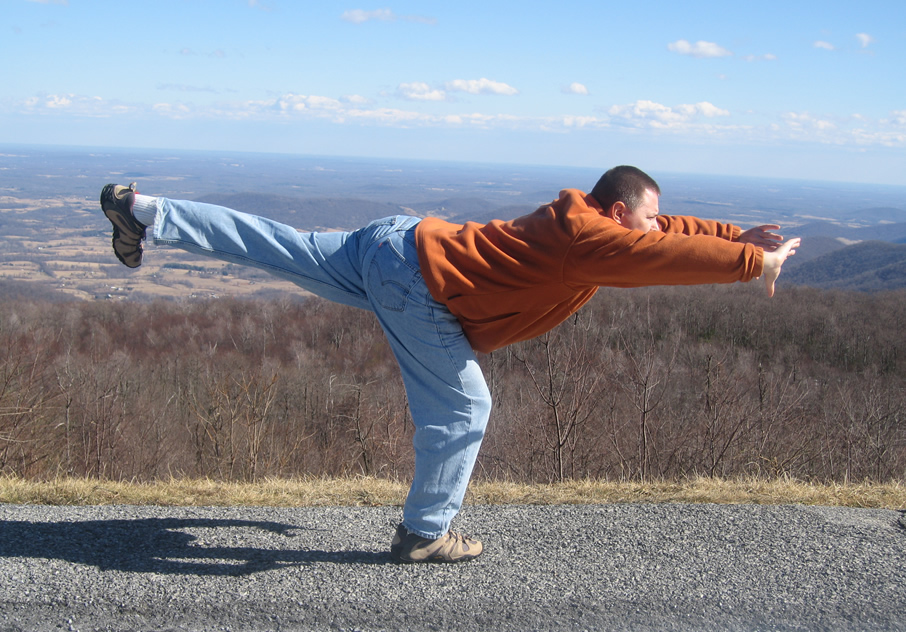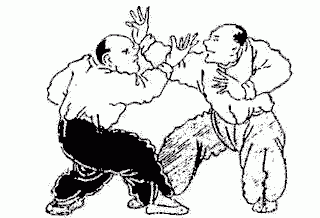
George Wood is the head instructor of Zong Wu Men, teaches the big three Internal Arts of Bagua, Xingyi and Taiji, and has now been studying martial arts for over 40 years.
He first learned as a child with short stints of karate and tae kwon do, but his true beginning in martial arts came with the study of Chinese martial arts. While studying various Shaolin forms of kung fu for over a decade, he also spent some time studying the Japanese arts of Judo, Japanese Jujitsu, and some Aikido.
George’s most concentrated period of study came when he moved to Taipei, Taiwan to study the internal martial arts of Baguazhang and Xingyiquan with Luo Dexiu, one of the world’s foremost experts on these traditional combat arts. His study of Baguazhang and Xingyiquan with Luo Dexiu profoundly affected his view of the possibilities inherent within the Internal Martial Arts. George studied intensively for seven years with Luo Laoshi while in Taiwan and was often given the honor of assisting Luo Laoshi in his teachings. George has also visited and studied with teachers in other parts of Taiwan, Hong Kong, and China.
After his return to the United States, he was told to begin teaching the arts and so soon thereafter founded Zong Wu Men in Arlington, Virginia in 2003. He continues to learn, teach and research the martial arts in general, as well as baguazhang and xingyiquan in specific, and plans to do so till they pound the last nail shut to his coffin.
George holds to the following ideals in his teaching and personal study of martial arts:
- Martial arts should be a positive pursuit for everyone involved. Everyone should be able to benefit from their study of martial arts.
- One’s study should never end. There is always more to learn, technique to further refine, further mountains to climb.
- A Martial Artist doesn’t have to be better than everyone else out there, they just have to be better than they were yesterday.
- Martial arts are primarily and at their core systems of fighting. This does not mean that there are not other wonderful side benefits or pursuits in the martial arts, or that every student must become some type of vicious street fighter. But to lose sight and practice of the essence of martial arts is to leave their path.
- The martial arts are a living tradition. Sweat over, bled over, and researched by our forebears – we owe them no less than to do the same in our practice.
- The study of martial arts is fun. Walking a circle alone in a forest glen or refining my fighting skills with like-minded people is something I enjoy and love. And I hope to have some of that love of the arts rub off onto my students.
- A proper learning environment for the martial arts requires not just hard work, serious and consistent study, but also mutual respect among the students and teacher, approaching every learning situation with humility and an “empty cup,” and a dedication to mutual benefit for all involved.
- Martial arts should build you up, not break you down. And each practitioner has to learn to listen to their bodies such that they will know both what they are capable of and what is beneficial to them at any given moment.
- Momentum in martial arts training is important. Sometimes it’s hardest to just start or restart your training. But beyond that, it’s the daily continual practice that leads over time to the big payoffs down the road.
- Laughing during training, among everyone involved, is not irreverent but a sign of joy in the training.
